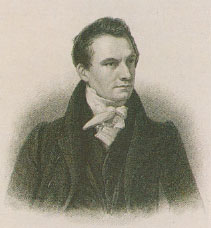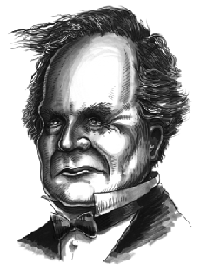|
|
|
|
Charles Babbage |
||
 |
 |
 |
|
|
||
| Charles Babbage was born December 26, 1791 in Teignmouth,
Devonshire UK. Charles Babbage Died in London in 1871. He is known as the
"Father of Computing" for his contributions to the basic design of the
computer through his Analytical machine. His previous Difference Engine
is a special purpose device intended for the production of tables. While
he did produce prototypes of portions of the Difference Engine, George
and Edward Schuetz constructed the first working Difference Engine from
prototypes made by Babbage.
In 1814 Charles entered Trinity College, Cambridge. He didn't start working on Difference Engine until 1823, with funding help from the British Government. In 1824 Charles Babbage wrote an essay on heat. Carnot formulated the first quantitative expression of irreversibility, by showing that a heat engine cannot convert all supplied heat energy into mechanical energy. Part of it is converted to useful work, but most is expelled into a low temperature reservoir and is wasted. William Thomson's used this in his discovery of the Second Law of Thermodynamics in 1852. In 1827 Charles published a table of logarithms from 1 to 108000. He set up the British Association for the Advancement of Science. Babbage began to work on the Analytical Engine in 1833. Charles Babbage also invented many other items still in use today. The standard railroad gauge and the occulting lights for lighthouses are some of his many inventions. He also had an interest in cyphers and lock picking. When he died in 1871, The Royal Society printed no obituary, and the Times ridiculed him. While parts to the Difference Engine gathered dust in the Museum of King's College. In 1878 The Cayley committee told the government was told by the Cayley committee not to bother constructing Babbage's Analytical Engine. Babbage faced significant problems with mechanical techniques. He had to invent the tools for his engine. His thought is so thoroughly modern that we wonder why he did not pursue electromechanical methods for his engines. It is easy to forget that Babbage was essentially a child of the Enlightenment,
and that his epoch was much different from our own. He resided in an era
of wood and coal, and the later era of steel and oil would not begin for
perhaps a decade after his death
|
|||
|
|
|
|
|